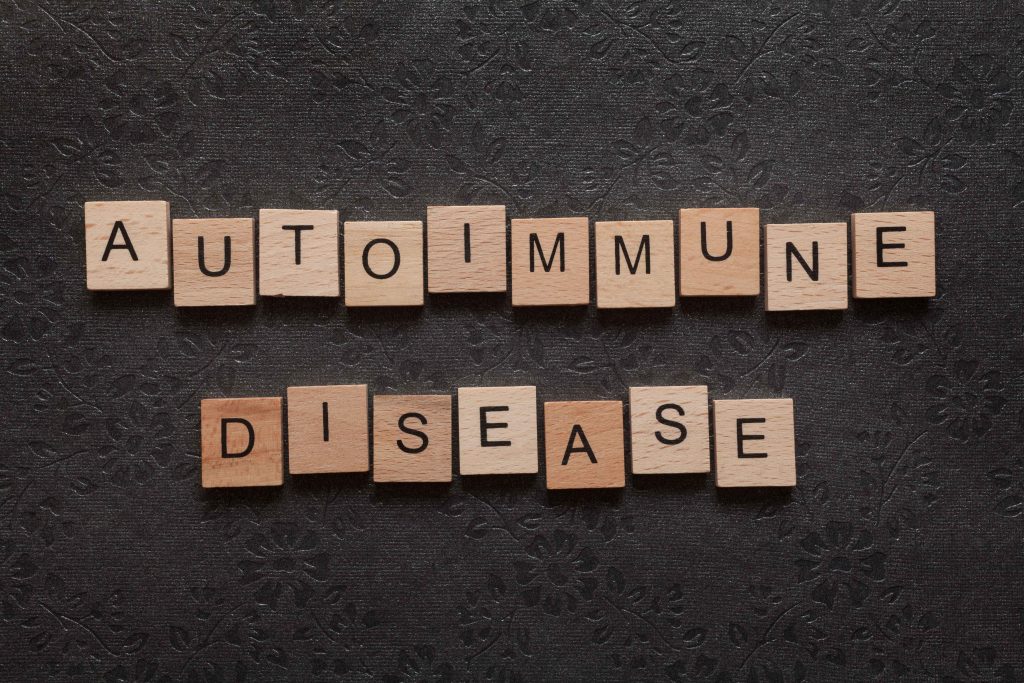
Why Do I Feel This Bad?
Have you suffered for months or even years with all kinds of random, seemingly unrelated symptoms? Have you been to multiple healthcare providers and still can’t get an answer? Are you discouraged and starting to doubt that your symptoms are even real? Has Autoimmune Diseases or disorders been mentioned to you?
I frequently hear this from patients who have been led to believe that because they cannot be diagnosed, their symptoms must somehow be exaggerated or imagined.
The first thing I want to say is – You are NOT crazy and it is NOT “all in your head”.
I believe Functional Medicine is the best option when dealing with an unexplained illness because this approach evaluates all aspects of health and takes the time to understand the complex relationship of a bunch of symptoms that don’t seem to be connected.
Maybe it’s time to consider an autoimmune condition, which I commonly see as the culprit.
Let’s review some of the symptoms you might be having…
Do you experience fatigue much of the time? I’m talking about the can’t get out of bed fatigue, not just the usual “I’m tired and could use more sleep” kind. Do you have unexplained, even transient (comes and goes, moves around) muscle or joint pain, headaches, insomnia, brain fog, depression or anxiety? Do you feel good some days and other days feel horrible? If you are a woman, are your symptoms generally worse around your period?
While most of these symptoms can be caused by any number of things, you owe it to yourself to dig deeper if you feel bad and just can’t seem to get better.
Let’s start with a little background on the term “autoimmune”. What does it mean? Is it real?
MedlinePlus (https://medlineplus.gov/autoimmunediseases.html) explains autoimmune as your immune system attacking healthy cells in your body by mistake. Diseases such as Sjogren’s, Lupus, Rheumatoid Arthritis, Mold/Biotoxin Illness, and even Lyme Disease are considered autoimmune diseases. And yes, autoimmune disease can result from chronic infection or exposure to things like mold toxins and Lyme pathogens.
Our practice sees so many patients with autoimmune disease, and there is much to say about this area of health- more specifics in later posts. Today’s blog will focus on the generalities of diagnosing and treating autoimmune disease. Let’s start with finding a diagnosis…
When seeing a Functional Medicine provider, we spend lots of time (up to an hour and a half or more!) getting to know you, understanding your personal and health background, and talking about specific symptoms and treatments you have had. This is so important in autoimmune disease, because understanding the components of your unique health journey will provide valuable “clues” that inform diagnosis and treatment protocols. This is where I have an issue with standard allopathic medicine- appointments are often 15 minutes or less, allowing virtually no time to dig deeply into your unique health history. As I always say- no disservice to insurance based providers, but I sure wish our healthcare system would return to focusing on the patient!
So why spend the time talking so much about each patient’s unique health journey? Because your symptoms didn’t just randomly start or worsen, and the things we talk about at our appointment help me piece together a timeline, potential exposures, and lifestyle factors that either brought on or made your symptoms worse. Understanding previous treatments, whether self-researched or prescribed, and how you responded is critical when evaluating you for an autoimmune disorder.
Once we’ve discussed your complete health history, what happens next?
The next part is the physical exam, which adds more to the overall health picture. Do you have swollen glands, dry hair or skin, rashes, split or cracked fingernails, toenail fungus, abdominal tenderness or bloating, a red throat or runny nose, coating on your tongue, joint pain or stiffness…you get the picture.
And then there are the questionnaires…
I know it’s time consuming- you’ve already completed our comprehensive medical questionnaire and provided records before you even had your appointment, but often more is needed. Maybe it’s a Thyroid questionnaire, a Stress/Anxiety/Depression scale, a GI questionnaire, or a Lyme/MSIDS scoring model. These can add valuable information to your personal health picture. Don’t worry- not everyone gets bombarded with additional questionnaires. It’s based on the evaluation and need for more information.
Once we’ve completed our conversation for the day, your Functional Medicine provider will make personal recommendations based upon your evaluation.
Often diagnostics are recommended- there are multiple autoimmune and inflammatory markers such as ANA, autoantibodies, C-Reactive protein, and Complement to name just a few. Visit MedlinePlus (link above) again for explanations of several.
In addition to the above tests, generally available through large diagnostic companies such as Quest or Labcorp, Functional Medicine providers use complex, detailed diagnostics not generally incorporated in standard practice.
Do we need to evaluate your micronutrient levels Spectracell link or nutritional status Nutreval link. ? Perhaps an evaluation of toxic elements (DOCTORS DATA link) or Mycotoxins(mycotox link)?. And if Lyme or MSIDS is high on the suspicion list, I may recommend DNA CONNEXIONS (link to lab) or IGenex (link) for further evaluation.
As you can see- there are so many diagnostics that can help us determine the causes of your symptoms that go well beyond what is normally ordered.
Once I have received your results, it’s time for us to discuss your preliminary diagnosis, if indicated, and a treatment plan that is personalized for you!
What kind of things will a Functional Medicine Provider recommend for treatment?
That depends on your overall state of health, other health conditions, lifestyle factors, medications, age, sex, etc.
While there are general recommendations that all autoimmune patients can benefit from, the body is a complex thing and there is no one-size-fits-all scenario. The wrong treatment, even if supplement or food-based, can make you even sicker. I urge you to be cautious about using treatments recommended by “Dr. Google” or someone who is not a licensed healthcare provider without specific knowledge of your health. I see patients who literally spend hundreds of dollars every month on supplements to self-treat, and many are actually doing more harm than good!
Let’s start with the basics:
Food is medicine, and a healthy dietary plan that incorporates nutrients to address your specific condition is key. We often underestimate the power of healthy food, but I promise you that even small dietary changes can profoundly affect your health. The little book Food Rules is a humorous approach to basic dietary guidelines. One simple guideline is “avoid foods that are pretending to be something they are not”.
Lifestyle factors play a key role here as well. So many studies show that simple balance exercises, meditation, and deep breathing can elevate mood, reduce inflammation, and improve immune function.
Medications and Supplements: Our approach is to control symptoms while treating what’s going on in the background, because I do not want you to “suffer through” while trying to heal.
Prescription medications may be indicated for some patients- I will prescribe if indicated and if my patient understands and accepts the risk/benefit of those medications. That’s where treatment starts- treating symptoms provides a “band aid” and doesn’t usually address the cause of symptoms.
Herbs, medicinal mushrooms, nutritional supplements, and other nutraceuticals can all play a role in improving health, but only if used appropriately and under medical supervision. If indicated to address imbalances or deficiencies, your Functional Medicine provider will make specific recommendations to address your situation and only for the period of time necessary.
There are many more aspects to a comprehensive treatment plan that may include referrals for physical or behavioral therapy, acupuncture, or other specialty provider. Because we address the complete person and because we know that true healing involves a comprehensive approach, your treatment plan may include any or all of the above.
Regular follow up is so important, especially in the early stages of treatment. We need to know how well your treatment plan is working, whether you are having positive or negative responses, and have the ability to modify or change treatment based upon your response.
If you are dealing with chronic symptoms, I hope this has given you some things to consider. I hope this shows you what a comprehensive approach to health should look like.
There is so much more to discuss, and I plan to address specific topics in upcoming blogs.
I welcome your questions and comments, and will do my best to answer as many as possible in upcoming posts.
Be well and God Bless!

